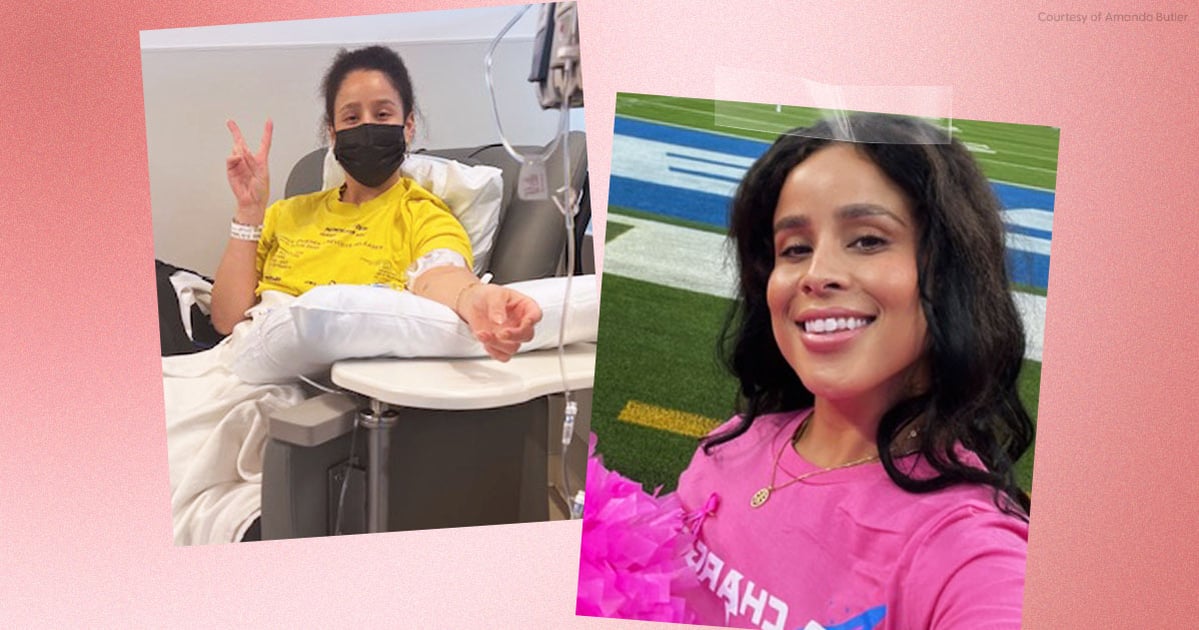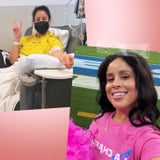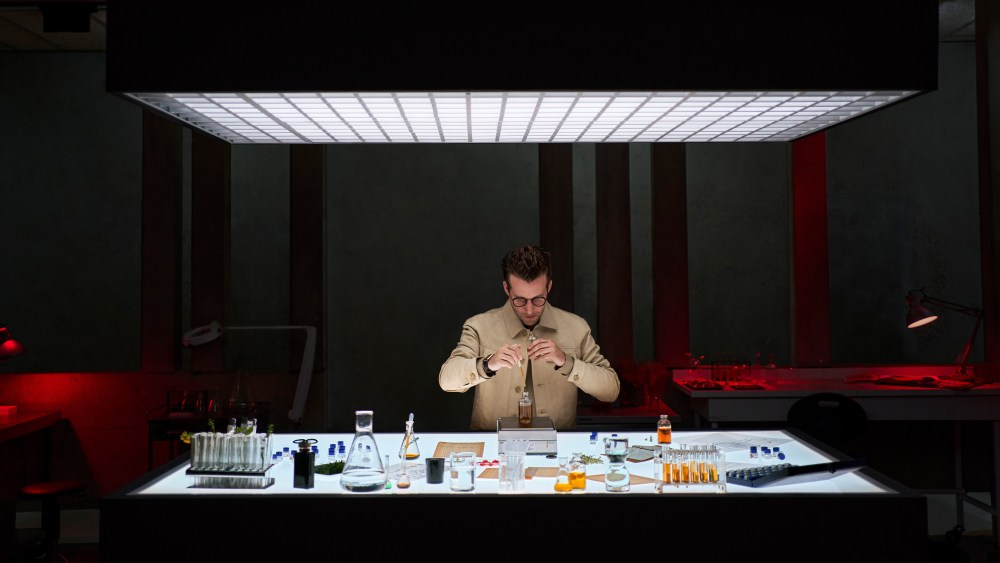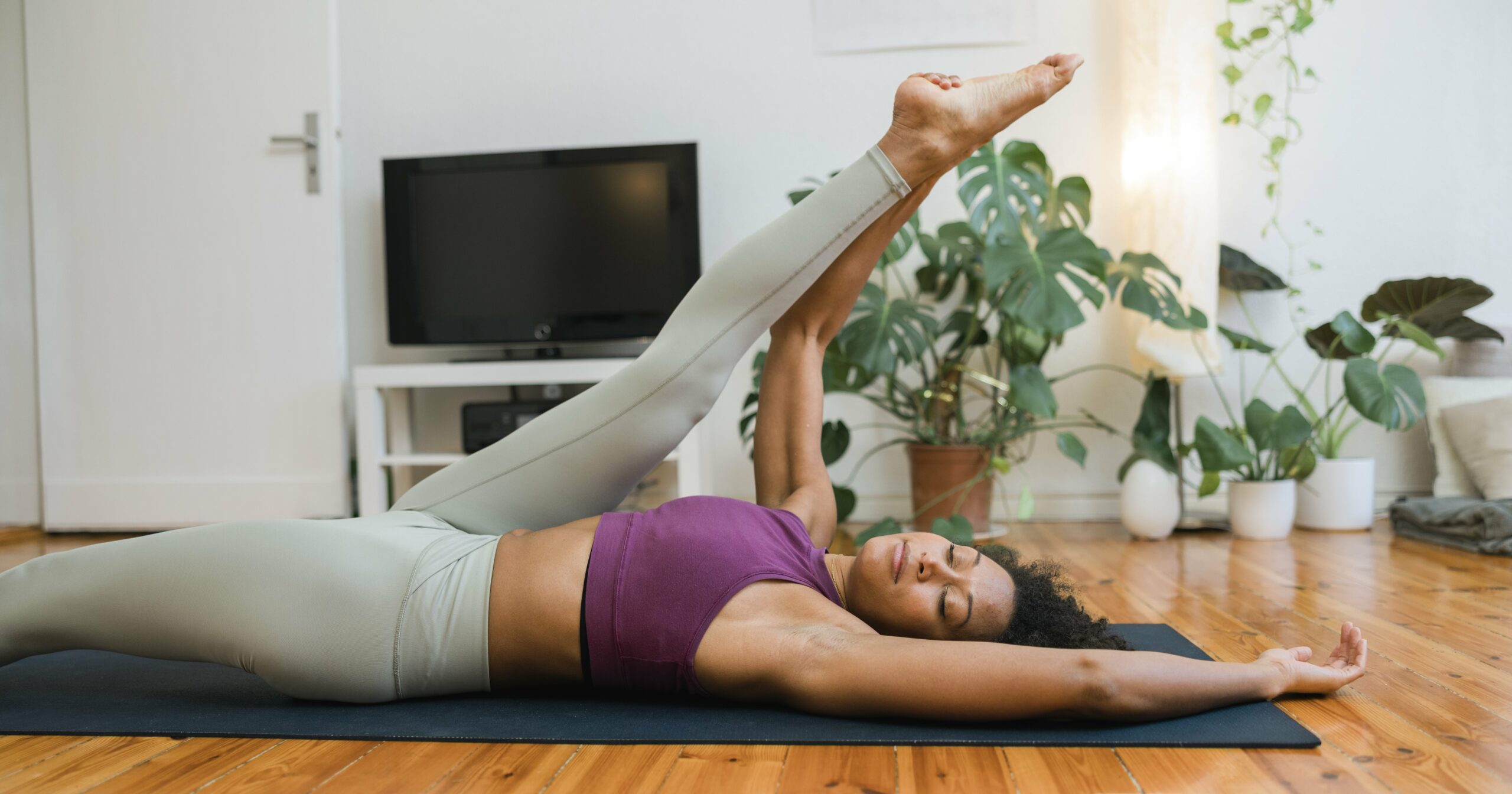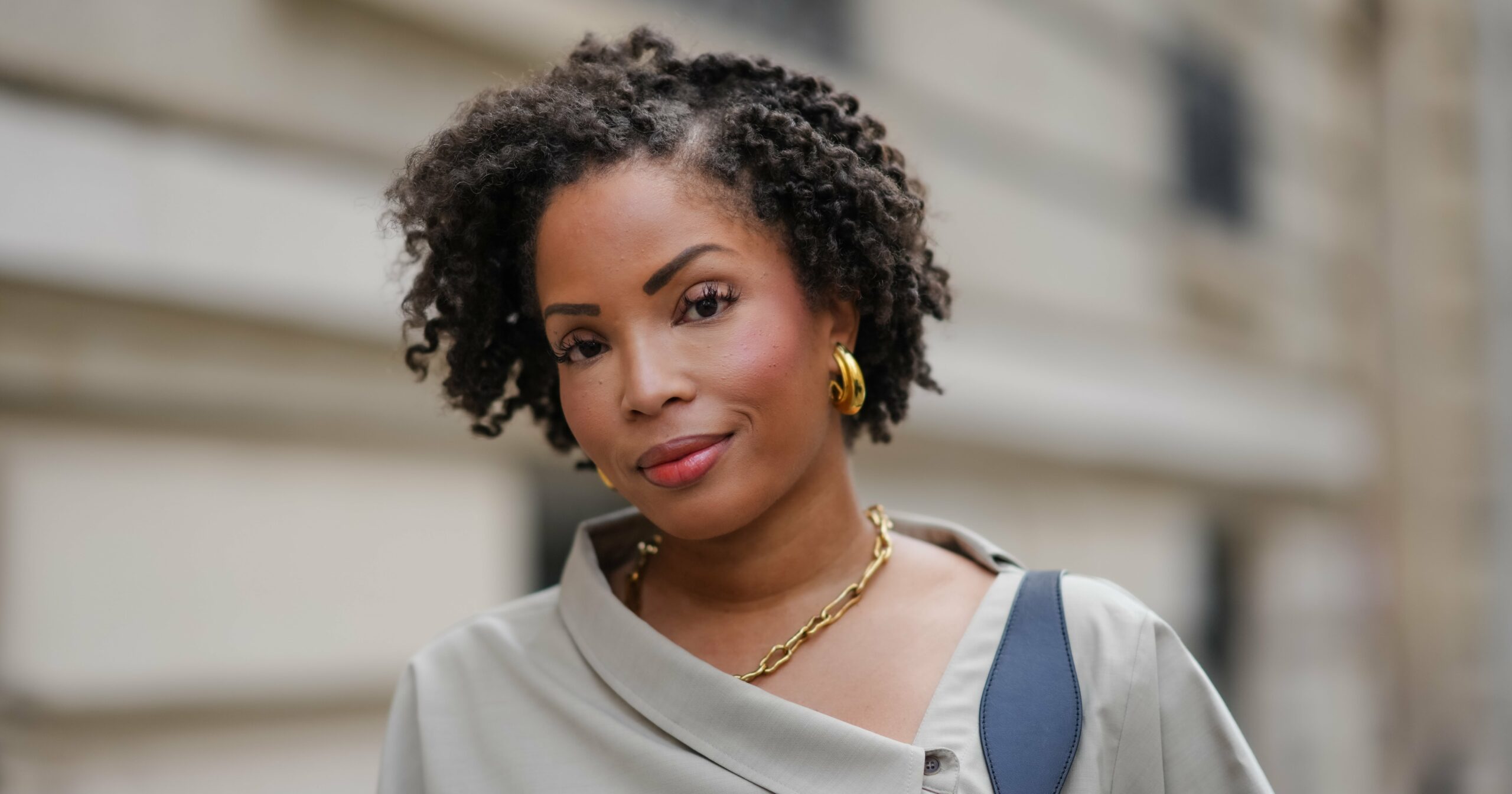In July 2022, at age 32, I found a lump in my right breast. I was concerned, but because I didn’t know of anyone in my family who’d had breast cancer, I thought it was probably nothing to worry about. Even so, as a precaution, I saw a doctor. During my exam, they palpated the lump, and I remember them saying, “Oh, it moves around. This is great. It’s probably a cyst.” They still recommended a follow-up mammogram, followed by an ultrasound and biopsy. But after the doctor’s visit, I felt pretty confident that everything would be OK.
I got “the call” on a Monday evening. I was driving home from the gym when I listened to the voicemail. “Hey Amanda, we got your biopsy results in, but we would love for you to come in tomorrow morning or as soon as you can to get these results,” the nurse said. I’d worked for a health IT company before becoming a personal trainer and fitness instructor, and from my time in healthcare, I knew this was not a good sign. I had a pit in my stomach, called my sister, and immediately started bawling on the phone. She told me to try to stay calm and keep busy that night.
The next morning, I went into the doctor’s office. As soon as the doctor walked into my room with two nurses, I knew. “I’m so sorry to tell you, but Amanda, you have breast cancer,” he said – and I just lost it.
“You’re going to be spending a lot of time at hospitals and doctors’ visits over the next year or so. But I believe that you’re going to be OK,” he continued. At that moment, I couldn’t even process what he was saying. I felt frozen, and I didn’t know what to do next.
Following this visit, I had a PET scan and MRI. After these tests, I was diagnosed again, this time with stage 2 breast cancer.
My mind was spinning. I just kept thinking, “My career is fitness.” My work is so centered around my body; I couldn’t wrap my mind around how I’d continue doing my job after my diagnosis. I felt like I’d been on this successful trajectory. I was a trainer for POPSUGAR’s Class Fitsugar; I was a trainer for Amazon; I was doing all these amazing campaigns. And then it was like the rug was swept out from underneath me.
I asked my oncologist about freezing my eggs, and the reaction I got was shocking: “But you want to pass your BRCA2 gene down to your children?” he said, as if I shouldn’t dare have kids.
My fertility plans, in particular, were kicked into overdrive. My number-one priority has always been creating a family. Even as a kid, I was never one of the girls who would dream about a wedding; I was dreaming about having my own babies. Since I was single at 32, I was already considering freezing my eggs in 2023, but I hadn’t moved forward with a plan yet.
As soon as I learned I had breast cancer, my oncologist had risen the topic of fertility, letting me know that chemo may lead to infertility. But at that point, I wouldn’t be starting chemo immediately, so I didn’t feel much pressure to make a plan. When I was diagnosed with stage 2 breast cancer, though, I was told I’d be starting chemo shortly. That’s when it felt like my clock was ticking.
I asked my oncologist about freezing my eggs, and the reaction I got was shocking: “But you want to pass your BRCA2 gene down to your children?” he said, as if I shouldn’t dare have kids. I was appalled. I couldn’t believe that someone on my care team would say something like this. I ultimately ended up switching oncologists before starting chemo and continued with my own egg-preservation research, tapping friends who were connected in the fertility space to ask questions.
I was diagnosed with stage 2 breast cancer on Sept. 20 and was starting chemo on Nov. 29, so I had to scramble to find a fertility clinic and doctor and freeze my eggs in just about two months. I wasn’t at all prepared for this journey; there’s so much I wish I’d known beforehand.
In any circumstances, egg freezing isn’t easy. But being newly diagnosed, my mind was all over the place. In that state, all I wanted was people to comfort me. Unfortunately, the fertility clinic I went to wasn’t geared toward people in my situation. And if I’m honest, the egg-freezing experience was an awful one for me.
It was a mess from start to finish. My clinic never laid out a clear timeline or sat me down to explain in detail how things would go. It was always, “Come and get blood drawn tomorrow,” with no explanation of timeline or process.
Each time I arrived at the clinic, they tried to slap me with a large bill, despite my explaining to them that my procedures were covered by California’s SB 600 law, which requires fertility clinics to cover the cost of egg preservation if it’s related to a cancer diagnosis.
In fact, I had to explain to them multiple times that I was doing this for cancer and I had to be done with egg freezing by Nov. 29 because that’s when I was starting chemo. I was in a time crunch, and the clinic didn’t seem to care.
My egg-retrieval procedure ended up being scheduled the day before I was supposed to start chemo, something I would never recommend. The egg retrieval itself was really physically difficult and much more painful, for much longer, than I’d anticipated. I thought the second my eggs were retrieved, I was going to feel like myself again. But I was in pain for about two weeks.
Plus, you pump the body with so many hormones for the egg retrieval; to get pumped with chemo the very next day was the biggest shock to the system. I was also disappointed at the lack of aftercare guidance I got from the fertility doctors. My body was pretty messed up for a while after the retrieval and my first round of chemo. My belly was distended for two weeks. I had no appetite and had a hard time keeping food down. While friends of mine who had gone through egg freezing gave me some advice about resting, hydrating, and avoiding exercise, I wished I’d gotten more information from my care team – especially about the combination of side effects from the egg retrieval and chemotherapy.
Another unexpected part of this journey was learning when I can actually use the eggs. It’s advised to hold off on having kids until at least two years after stopping chemotherapy. I wound up doing six rounds of chemo after my egg retrieval, had a double mastectomy in May 2023, and finished 25 rounds of radiation in August; I’m currently doing low-dose chemo and will continue going through active treatment until March 2024. Even then, I’ll have to be on a drug called tamoxifen, a hormone blocker that essentially keeps your body in a state of menopause so that you don’t produce hormones that would cause your breast cancer to grow. While I can pause tamoxifen to try to conceive, I’ll be at least 36 before I can try to have children. That period of waiting feels like both a blessing and a curse.
On one hand, egg freezing has given me more time and insurance to feel like I don’t have to rush to have kids. But it’s also really hard, because at this age, I’m starting to see all of my friends and family have kids, and I’m physically not allowed to. No one prepares you for the mental and emotional toll of that. It’s pretty hard to grasp, especially if having kids is something you really, really want, like it is for me.
A crucial part of processing my fertility and cancer journey has been my mindset. I’ve had to remind myself that even though I’m doing so much of this for the first time, I’ve actually seen all of the emotions that the experience brings about before: I’ve felt heartache before, I’ve felt disappointment before, I’ve felt illness and the sense of being trapped by my own body when sick before. That’s allowed me to use what I’ve learned from those past experiences to get through cancer and helped me switch the narrative in my mind from “Why is this happening to me?” to “What is this trying to teach me?”
I’ve also become way more public about my experiences online, written a chemo guide for others, and created a virtual support group called Cancer Baddies. I have monthly meetings with the group where we just get on a call, talk all things cancer, and bitch about everything we’re going through. You really need to have that strong support system of people who know what you’re experiencing – otherwise it’s going to feel very lonely.
– As told to Alexis Jones
